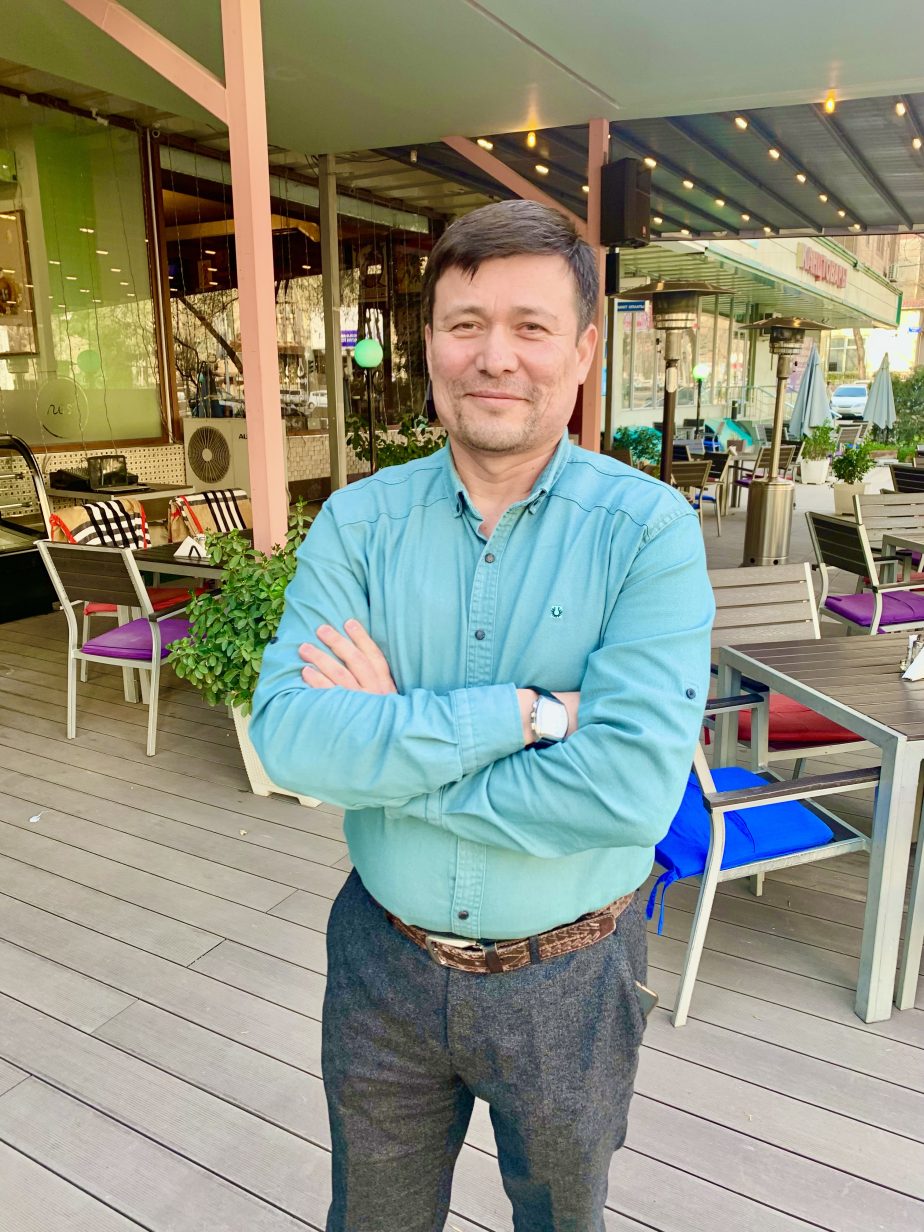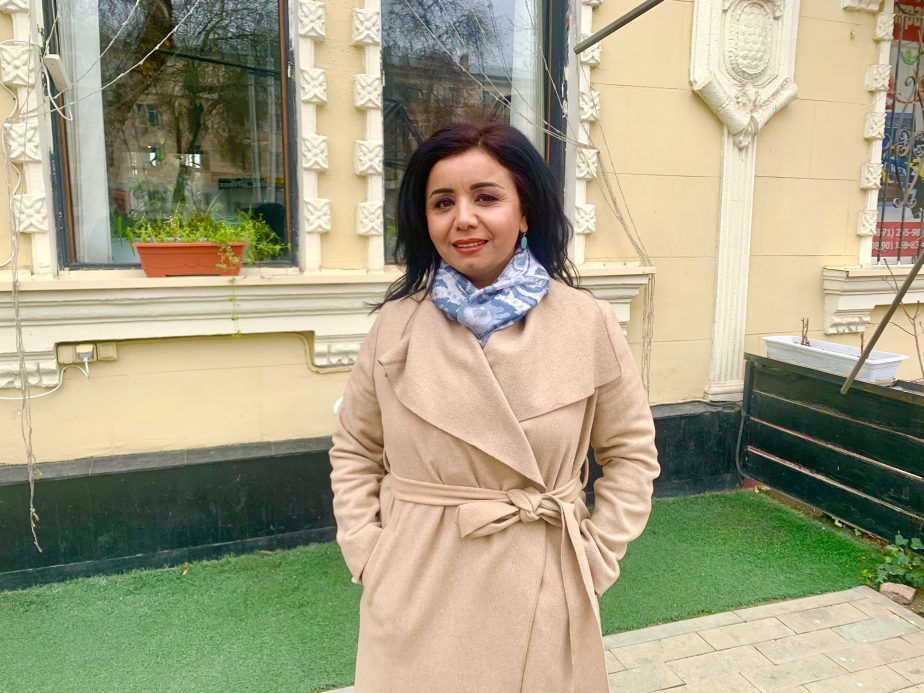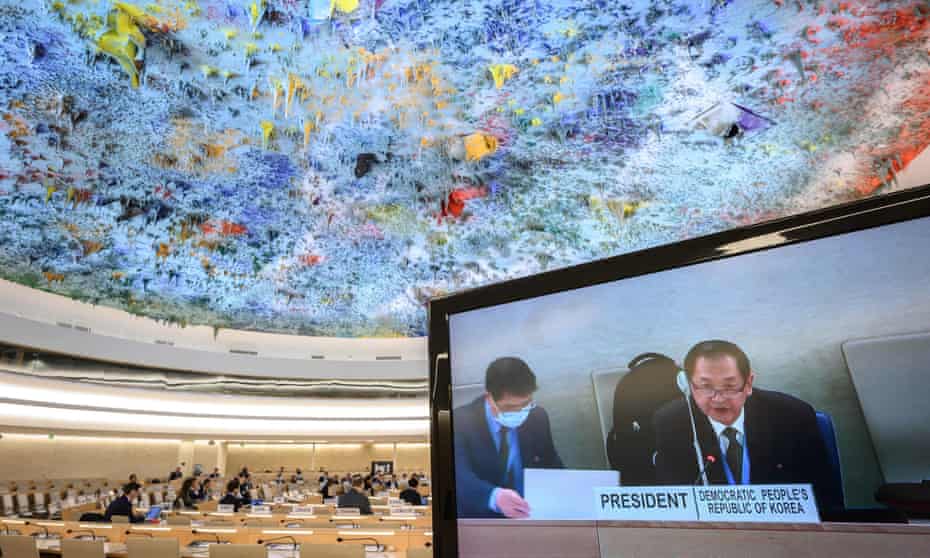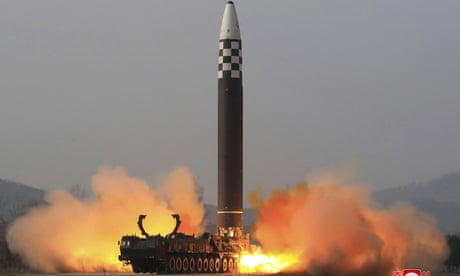Uzbekistan’s State Security Services threaten, intimidate, and pressure journalists to avoid certain topics and delete certain stories.
By Cheryl L. Reed
June 03, 2022

Credit: Catherine Putz
This is part one of a two-part investigation into the State Security Services’ increasing repression of Uzbekistan’s journalists.
TASHKENT, UZBEKISTAN — Tolib Rakhmatov was an investigative reporter for the popular Tashkent media platform Kun.uz when he was summoned in 2019 for his first meeting with the State Security Services (SSS) at Cafe Shum Bola. Rakhmatov, a middle-aged man with kind eyes and a quick wit, thought the restaurant was an ominous place for such a meeting. “Shum bola” means “naughty boy” in Uzbek.
“They said they just wanted to get to know me better,” he recalled recently. During his time at Kun.uz he was contacted five times by the SSS, he said. Each time he felt the officers were trying to intimidate him into quitting his job.
“They make indirect threats,” he added. “They say, ‘You don’t want your son or daughter to become crippled one day. You don’t want them crossing the street and something to happen to them.’”
Rakhmatov’s experiences with the SSS were similar to those recounted by more than 35 journalists, bloggers, human rights activists, and media watchers I interviewed in Uzbekistan from March until June this year. The Uzbekistan government welcomed me as an American journalist and U.S. Fulbright Scholar – a research grant from the U.S. State Department – to research the challenges facing journalists reporting about corruption and government malfeasance. I had previously interviewed nearly 100 journalists about obstacles to press freedoms in eight other post-Soviet countries.

Tolib Rakhmatov was a former investigative reporter with Kun.uz. He now covers Uzbekistani migrant workers abroad for www.migrant.mobi. Photo provided by author.
During the 26 years of former President Islam Karimov’s repressive regime, journalists were imprisoned and tortured. Since President Shavkat Mirziyoyev took over in late 2016, Uzbekistan has had a freer media. Currently, there are 10 bloggers in prison in Uzbekistan but no officially registered journalist is behind bars, according to human rights groups and media watchers.
Uzbekistan’s media is still crawling out from under the legacy of the Soviet era, when entertainment news dominated and government censors deleted what was perceived as too dangerous. Many journalists are still on the government payroll, working for state-owned and controlled TV, radio, newspapers, and websites. Other journalists and bloggers work as press agents for various government organizations. Even independent media take money from government organizations to report unlabeled advertorials.
Journalism ethics are not well developed in the country, and understanding of conflict of interests is limited. Media editors and owners lack sophistication when it comes to the variety of ways stories can be reported. Many don’t understand or appreciate news analysis or investigative reporting. Journalism education is very basic and taught by many who were trained under the Soviets.
The only people who seem to be pushing the limits of the government’s tolerance are untrained bloggers who largely videotape in a shock and shame style. But these gonzo bloggers, who frequently take money to cover certain stories, are not protected by media laws.
Unlike Belarus and some other repressive post-Soviet countries where independent journalists band together and journalist groups aggressively fight for their rights, journalists in Uzbekistan are less collegial. Many are openly critical and suspicious of each other and of the union that is supposed to represent them.
One of the biggest problems cited by most Uzbekistani journalists is the SSS, who they say threatens, intimidates, orders them to delete stories, and demands they stop covering certain topics, such as high-level corruption within the government, the activities of wealthy businessmen, religious practices, or anything vaguely disrespectful to the president or his family. Despite repeated requests, the SSS refused to meet with me.
Such threats and intimidation stifle journalists from reporting about corruption and problems that the newly elected president says he needs to know about to make reforms. The result is a media that is timid and self-censoring, a populace that is afraid to speak out, and a country that promotes the façade of a free press when in reality it is a country that is entangled in propaganda.
“When the treatment becomes more harsh and more severe, people become more timid and more abiding authority, like North Korea,” explained Tashanov Abdurakhmon, chairman of Ezgulik, Uzbekistan’s only registered independent human rights group. “We are ill from these demands.”
I found only one journalist who claimed she could write whatever she wanted and the SSS wouldn’t bother her. When I asked what her secret was, she said: “The SSS killed my brother in 2015, eight of them went to prison. So now they leave me alone.”
Journalists say SSS pressure on the media has only intensified with the trifecta of controversial events: last October’s presidential election in Uzbekistan, the January protests in nearby Kazakhstan, and the Russian invasion of Ukraine in February.
“Media freedom has really gone down dramatically,” said Navbahor Imamova, a Voice of America reporter who has covered Central Asia for more than 20 years. “I’d say Uzbekistan has taken some 10 steps back. The security services have gotten much stronger.”

Navbahor Imamova is a former Uzbekistani state journalist who has worked for Voice of America covering Central Asia for more than 20 years. Photo provided by author.
Problems at Kun.uz
Rakhmatov left his job at Kun.uz on January 31 after he said he was told by owner Umid Shermukhammedov to stop reporting on stories about a land development case in Nazarbek involving a construction company owned by the brother of a deputy minister. Rakhmatov had written about the case as it wound through the court system. Then he says Shermukhammedov suddenly told him to stop. But when the case reached the Supreme Court, Rakhmatov wrote about the court ruling against the construction company.
“I thought it was safe to write about it,” Rakhmatov said. “We usually follow the principle that after a case comes to a logical conclusion that we write something about it. The Supreme Court decision was the final outcome.”
Four hours after the story was posted, it was removed, he said. The next day Rakhmatov was out of a job. He believes that someone in the government pressured Shermkhammedov.
“I was surprised because in the past Umid was quite free and open. And he was always very motivated about being brave in journalism,” Rakhmatov said. “I was quite disappointed.”
Shermkhammedov did not respond to repeated requests for an interview.
A month later, Kun.uz and other Tashkent media platforms came under fire from the SSS regarding their coverage of the Ukraine war.
“We tried to report both sides of the war,” explained Kun.uz Editor Dilshod Abdukadirov during an interview three weeks later. “The government said we need to take a more neutral position.” Although it was widely reported that Abdukadirov and Shermukhammedov were detained by the SSS for several hours on February 26 for their Ukraine coverage, Abdukadirov denied he’d ever been contacted by the SSS. Shermukhammedov even posted about the meeting on his Facebook, which was seen by dozens of reporters. He later deleted the post.
This is part one of a two-part investigation into the State Security Services’ increasing repression of Uzbekistan’s journalists.
TASHKENT, UZBEKISTAN — Tolib Rakhmatov was an investigative reporter for the popular Tashkent media platform Kun.uz when he was summoned in 2019 for his first meeting with the State Security Services (SSS) at Cafe Shum Bola. Rakhmatov, a middle-aged man with kind eyes and a quick wit, thought the restaurant was an ominous place for such a meeting. “Shum bola” means “naughty boy” in Uzbek.
“They said they just wanted to get to know me better,” he recalled recently. During his time at Kun.uz he was contacted five times by the SSS, he said. Each time he felt the officers were trying to intimidate him into quitting his job.
“They make indirect threats,” he added. “They say, ‘You don’t want your son or daughter to become crippled one day. You don’t want them crossing the street and something to happen to them.’”
Rakhmatov’s experiences with the SSS were similar to those recounted by more than 35 journalists, bloggers, human rights activists, and media watchers I interviewed in Uzbekistan from March until June this year. The Uzbekistan government welcomed me as an American journalist and U.S. Fulbright Scholar – a research grant from the U.S. State Department – to research the challenges facing journalists reporting about corruption and government malfeasance. I had previously interviewed nearly 100 journalists about obstacles to press freedoms in eight other post-Soviet countries.

Tolib Rakhmatov was a former investigative reporter with Kun.uz. He now covers Uzbekistani migrant workers abroad for www.migrant.mobi. Photo provided by author.
During the 26 years of former President Islam Karimov’s repressive regime, journalists were imprisoned and tortured. Since President Shavkat Mirziyoyev took over in late 2016, Uzbekistan has had a freer media. Currently, there are 10 bloggers in prison in Uzbekistan but no officially registered journalist is behind bars, according to human rights groups and media watchers.
Uzbekistan’s media is still crawling out from under the legacy of the Soviet era, when entertainment news dominated and government censors deleted what was perceived as too dangerous. Many journalists are still on the government payroll, working for state-owned and controlled TV, radio, newspapers, and websites. Other journalists and bloggers work as press agents for various government organizations. Even independent media take money from government organizations to report unlabeled advertorials.
Journalism ethics are not well developed in the country, and understanding of conflict of interests is limited. Media editors and owners lack sophistication when it comes to the variety of ways stories can be reported. Many don’t understand or appreciate news analysis or investigative reporting. Journalism education is very basic and taught by many who were trained under the Soviets.
The only people who seem to be pushing the limits of the government’s tolerance are untrained bloggers who largely videotape in a shock and shame style. But these gonzo bloggers, who frequently take money to cover certain stories, are not protected by media laws.
Unlike Belarus and some other repressive post-Soviet countries where independent journalists band together and journalist groups aggressively fight for their rights, journalists in Uzbekistan are less collegial. Many are openly critical and suspicious of each other and of the union that is supposed to represent them.
One of the biggest problems cited by most Uzbekistani journalists is the SSS, who they say threatens, intimidates, orders them to delete stories, and demands they stop covering certain topics, such as high-level corruption within the government, the activities of wealthy businessmen, religious practices, or anything vaguely disrespectful to the president or his family. Despite repeated requests, the SSS refused to meet with me.
Such threats and intimidation stifle journalists from reporting about corruption and problems that the newly elected president says he needs to know about to make reforms. The result is a media that is timid and self-censoring, a populace that is afraid to speak out, and a country that promotes the façade of a free press when in reality it is a country that is entangled in propaganda.
“When the treatment becomes more harsh and more severe, people become more timid and more abiding authority, like North Korea,” explained Tashanov Abdurakhmon, chairman of Ezgulik, Uzbekistan’s only registered independent human rights group. “We are ill from these demands.”
I found only one journalist who claimed she could write whatever she wanted and the SSS wouldn’t bother her. When I asked what her secret was, she said: “The SSS killed my brother in 2015, eight of them went to prison. So now they leave me alone.”
Journalists say SSS pressure on the media has only intensified with the trifecta of controversial events: last October’s presidential election in Uzbekistan, the January protests in nearby Kazakhstan, and the Russian invasion of Ukraine in February.
“Media freedom has really gone down dramatically,” said Navbahor Imamova, a Voice of America reporter who has covered Central Asia for more than 20 years. “I’d say Uzbekistan has taken some 10 steps back. The security services have gotten much stronger.”

Navbahor Imamova is a former Uzbekistani state journalist who has worked for Voice of America covering Central Asia for more than 20 years. Photo provided by author.
Problems at Kun.uz
Rakhmatov left his job at Kun.uz on January 31 after he said he was told by owner Umid Shermukhammedov to stop reporting on stories about a land development case in Nazarbek involving a construction company owned by the brother of a deputy minister. Rakhmatov had written about the case as it wound through the court system. Then he says Shermukhammedov suddenly told him to stop. But when the case reached the Supreme Court, Rakhmatov wrote about the court ruling against the construction company.
“I thought it was safe to write about it,” Rakhmatov said. “We usually follow the principle that after a case comes to a logical conclusion that we write something about it. The Supreme Court decision was the final outcome.”
Four hours after the story was posted, it was removed, he said. The next day Rakhmatov was out of a job. He believes that someone in the government pressured Shermkhammedov.
“I was surprised because in the past Umid was quite free and open. And he was always very motivated about being brave in journalism,” Rakhmatov said. “I was quite disappointed.”
Shermkhammedov did not respond to repeated requests for an interview.
A month later, Kun.uz and other Tashkent media platforms came under fire from the SSS regarding their coverage of the Ukraine war.
“We tried to report both sides of the war,” explained Kun.uz Editor Dilshod Abdukadirov during an interview three weeks later. “The government said we need to take a more neutral position.” Although it was widely reported that Abdukadirov and Shermukhammedov were detained by the SSS for several hours on February 26 for their Ukraine coverage, Abdukadirov denied he’d ever been contacted by the SSS. Shermukhammedov even posted about the meeting on his Facebook, which was seen by dozens of reporters. He later deleted the post.

Dilshod Abdukadirov, left, is an editor at Kun.uz Here he is pictured with one of his reporters, Ilyos Safarov. Photo provided by author.
Abdukadirov promised to pose questions about the incident with Shermukhammedov and get back to me. Finally, after many Telegram and email exchanges over the course of two months, Abdukadirov wrote, “Umid does not want to talk about this topic.”
Rahkmatov was not surprised. “It’s normal to deny certain things,” he said. “They have to deny. They have to say everything is fine. In 2018, when the government put us offline and our website was blocked for 11 days, we told the public that it was a technical problem. But in fact, it was blocked.”
Since the end of February, Kun.uz, like other independent media, has published its most aggressive war coverage on its Telegram channel. In contrast, its website coverage has wavered between something equating neutral coverage andcarrying stories straight from the Kremlin’s news service – like a story in which Putin claims he is helping Ukrainians with its “special operations” and another incendiary story in which Putin claims the atrocities in Bucha were faked. That story carried the original headline “Bucha is fake,” but has now been changed so that Bucha is no longer mentioned in the headline.
Dilshod Saikjonov is the first deputy director of the Agency for Information and Mass Media – the government’s media monitoring arm. He said he was not aware that the SSS had pressured Kun.uz to delete and alter its Ukraine coverage, even though the situation was highlighted by Reporters Without Borders (RSF). Uzbekistan recently boasted about its ranking in RSF’s latest World Press Freedom index: 133 out of 180 countries.
“Kun.uz and Gazetta.uz are such strong mass media, why would they need to delete material?” He said he had privately urged the top editors to “balance” their stories on the war “because we are friends,” he said. “We play football together.”
Saikjonov said he was not aware of any journalist being pressured by the SSS. “Yes, I had some calls from journalists in the past who said it was a real situation, but I didn’t know if they were exaggerating,” he said.
Komil Allamjonov, former press secretary for Mirziyoyev and now head of the Public Foundation for Support and Development of National Mass Media, said he was aware of what happened at Kun.uz and had seen Shermukhammedov’s Facebook post.
“Some people from certain services lack sophistication and proper skills to work with journalists,” Allamjonov said. “So probably Umid and Dilshod had to face this kind of situation when they faced a work of unsophisticated tactics and instruments.”
He added, “The majority of the security services are people of old traditions of the Soviet legacy. So they inherited these old methods, which were rude.”
Allamjonov believes that journalism is one of the most dangerous professions. But he says journalists in his country need to be passionate about justice, brave and courageous, and fight against “these dark forces.”
“No one,” he said, “is going to give you media freedom as a gift.”
Allamjonov wields enormous power from his perch at the foundation. His deputy is the president’s own daughter, Saida Mirziyoyev. Allamjonov warns journalists not to politicize media freedom because the president could change his mind and opt for a more repressive media policy, like the one in Singapore.
Abdurakhmon, Ezgulik’s chairman, says that there is no freedom of the press and speech in Uzbekistan if that freedom only derives from the whims of one man. “Sooner or later the president can change his mind,” he said. “Freedom of speech should just be and not be dependent on whether the president wants it.”

Tashanov Abdurakhmon, left, is the chairman of Ezgulik, the only human rights organizations that is registered in Uzbekistan. Bekzod Nurmatov is vice chairman of Ezgulik. Photo provided by author.
Old Soviet Methods
In some cases the SSS pressure forces journalists to change their beats and their media platforms. Alisher Ruziohunov has worked at a number of media platforms including Kun.uz, Gazetta.uz and Bugun.uz. He said he has been asked to meet several times with the SSS. Once he was asked to postpone a story about a popular Tashkent market the government wanted to move. The market, he said, was owned by the son-in-law of an SSS officer.
“We made a big coverage,” he said. “We were asked by the SSS to postpone this coverage until some time when people weren’t aware of what they were doing.”
Later he was working on a story about how houses were being demolished in Andijan. The SSS warned him his coverage needed to be “soft.”
Ruziohunov said he changed his beat from politics to economics solely to avoid SSS pressure. “I prefer covering economic news because there are no red lines. In political coverage, you can’t cover the family of the president. There’s no reason to become a good journalist if you can only do this up to a certain level.”
The last time Ruziohunov received a threat from the SSS was in December 2021. An SSS officer asked him to a café and pressured him to inform him about the stories he was working on.
“He threatened me that if I didn’t cooperate that I would never have another job, and my brother would have troubles,” he said. “When I said I didn’t care about those things, the man offered me money. I told him I didn’t want the money. When he realized I wasn’t going to do what he wanted, he said he was just kidding. But I know how they manipulate reporters.”
Last year on May 3 – World Press Day – Ruziohunov said he and several other journalists he trusted were invited to the home of Timothy Torlot, the ambassador of the United Kingdom to Uzbekistan. There is even a picture of Ruziohunov, wearing a dapper blue jacket, and several other journalists sitting in Torlot’s living room on the embassy’s Facebook page. Afterwards, he said, an SSS officer visited him. “The guy told me what I said and recounted the conversation,” he said. “I knew one of my friends had informed on me using old Soviet methods.”
GUEST AUTHOR
Cheryl L. Reed is an American author and journalist who is researching journalistic freedoms in post-Soviet states. She is currently a Fulbright Scholar in Central Asia. For more information, see www.cherylreed.com







:quality(70)/cloudfront-us-east-1.images.arcpublishing.com/mco/KWRZ632PC5HETLF6JQK6YAYNEE.jpg)
:quality(70)/cloudfront-us-east-1.images.arcpublishing.com/mco/WTJ3H7APTVFI3AZZBL5H2LWJXE.jpg)
:quality(70)/cloudfront-us-east-1.images.arcpublishing.com/mco/A5725LKOPRDTNHZ2ZA2WRMRUWU.jpg)
:quality(70)/cloudfront-us-east-1.images.arcpublishing.com/mco/6Q3RW2E5PFGSZDOV6IB6N7NA3I.jpg)
:quality(70)/cloudfront-us-east-1.images.arcpublishing.com/mco/Y7FFR2WE65HOXKMZMPEEZCNNIM.jpg)
:quality(70)/cloudfront-us-east-1.images.arcpublishing.com/mco/LGABPNPXCRBN5MVDO2JWP3XOYA.jpg)
:quality(70)/cloudfront-us-east-1.images.arcpublishing.com/mco/757YZDDBOVGMDKIDSZMEWVQZYQ.jpg)